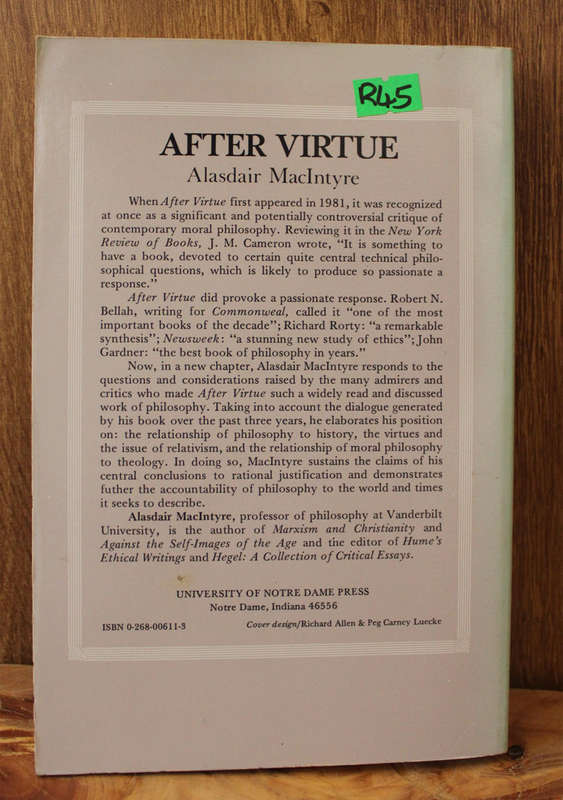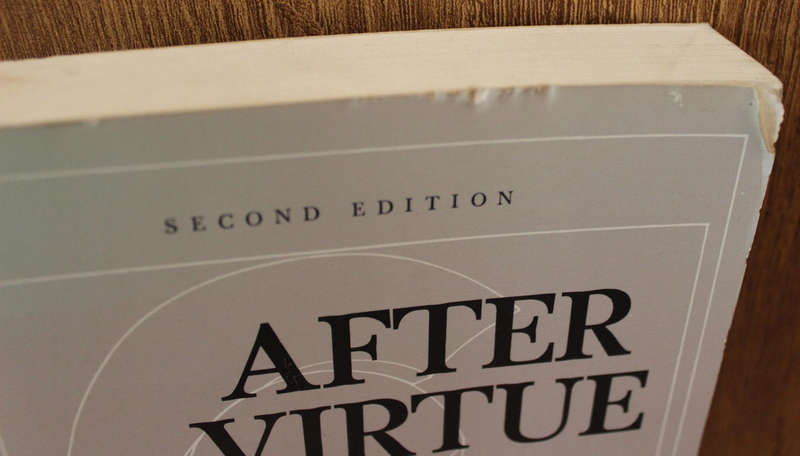










After Virtue - Alasdair MacIntyre
Check my rate
| Main centres: | 1-3 business days |
| Regional areas: | 3-4 business days |
| Remote areas: | 3-5 business days |











| Main centres: | 1-3 business days |
| Regional areas: | 3-4 business days |
| Remote areas: | 3-5 business days |
Between medium and large paperback. cover has wear - see photos
When After Virtue first appeared in 1981, it was recognized at once as a significant and potentially controversial critique of contemporary moral philosophy. Reviewing it in the New York Review of Books, J. M. Cameron wrote, It is something to have a book, devoted to certain quite central technical philosophical questions, which is likely to produce so passionate a response.
After Virtue did provoke a passionate response. Robert N. Bellah, writing for Commonweal, called it one of the most important books of the decade; Richard Rorty: a remarkable synthesis; Newsweek: a stunning new study of ethics; John Gardner: the best book of philosophy in years.
Now, in a new chapter, Alasdair MacIntyre responds to the questions and considerations raised by the many admirers and critics who made After Virtue such a widely read and discussed work of philosophy. Taking into account the dialogue generated by his book over the past three years, he elaborates his position on: the relationship of philosophy to history, the virtues and the issue of relativism, and the relationship of moral philosophy to theology. In doing so, MacIntyre sustains the claims of his central conclusions to rational justification and demonstrates further the accountability of philosophy to the world and times it seeks to describe